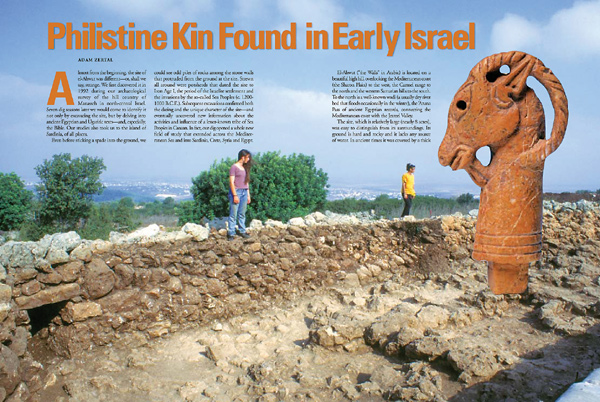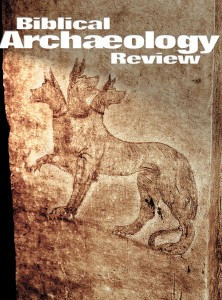Debate: Sticking to the Facts
Adam Zertal counters Israel Finkelstein

In the May/June 2002 issue of BAR, we published Adam Zertal’s “Philistine Kin Found in Early Israel,” in which he argued that the ruins found at el-Ahwat in northern Israel were the remains of an Iron Age I (1200–1000 B.C.E) city built not by locals but by a tribe of Sea Peoples known as the Shardana. Zertal links the Shardana to distant Sardinia, basing his claim on the site’s many unusual features. Among them are small domed structures, known in Greek as tholoi, that resemble edifices found in Late Bronze Age (1500–1200 B.C.E.) Sardinia. Another is the apparent brevity of the city’s history: according to Zertal, the entire city—walls, homes and all—was built at one time and inhabited for less than a century.
However, another prominent archaeologist, Israel Finkelstein, disagreed with Zertal’s findings. Finkelstein published his critique in the Israel Exploration Journal, which we summarized in “Just Another Israelite Village” (May/June 2003). Contra Zertal, Finkelstein claims that the site, despite its unusual features, was, as our title says, just another Israelite village, and that its supposedly massive walls date to a much later time and are simply field stones cleared for Roman agricultural terraces. Below is Adam Zertal’s rebuttal to Finkelstein’s critique.—Ed.
Already a library member? Log in here.
Institution user? Log in with your IP address.

